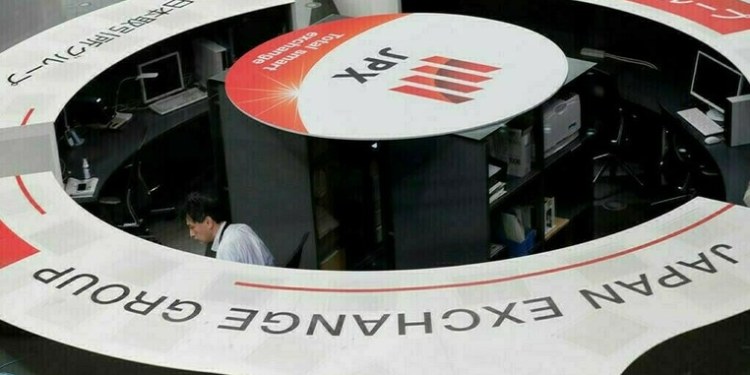By Chikako Mogi
TOKYO (Reuters) – Asian shares paused on Thursday after rallying to their highest in nearly 17 months the day before, as talks to avert a U.S. fiscal crisis stalled – prompting worries of the world’s largest economy sliding back into recession.
The yen remained under pressured as the Bank of Japan concludes its two-day policy meeting later in the session, with market participants expecting further easing steps to help support the fragile economy.
MSCI’s broadest index of Asia-Pacific shares outside Japan was little changed, with Australian shares easing 0.1 percent, off a 17-month high hit on Wednesday. Seoul shares opened 0.5 percent higher, after Wednesday’s presidential election, with many traders expecting talk of fresh stimulus measures from the government.
World stocks trimmed gains on Wednesday after reaching a 17-month high as talks to avert the U.S. “fiscal cliff” of tax hikes and spending cuts set to begin early next year appeared to stall.
President Barack Obama accused Republicans of digging in their heels due to a personal grudge against him, while a top Republican called the president “irrational.”
“If this discussion continues to go as it has gone today (Wednesday), watch for more selling off as hopelessness begins to take hold for many investors across all asset classes,” said Neal Gilbert, market strategist at GFT Forex, in a note to clients.
“Ironically, the USD may be one of the biggest beneficiaries of a failure. Rampant buying of US treasuries and selling of risk assets like the equities market could create a very significant move, particularly since the rallies seen earlier have been attributed to the optimism of a deal,” Gilbert said.
The Nikkei stock average opened down 0.7 percent after closing Wednesday up 2.4 percent and above the key 10,000 level for the first time since April, as expectations for more easing weakened the yen, which improves earnings prospects for Japanese exporters.
The Bank of Japan is expected to deliver its third dose of monetary stimulus in four months on Thursday in a prelude to more aggressive action next year, as it faces intensifying pressure from the country’s next leader for stronger efforts to beat deflation.
On Thursday, the BOJ will also announce details of a new loan programme unveiled in October to supply banks with cheap long-term funds without limiting the amount of cash made available.
With markets already very bearish on the yen, traders warned a lack of bold action could see short positions squeezed.
“We may see the yen regain its footing over the next 24-hours of trading should Governor Masaaki Shirakawa take a greater stand in preserving the central bank’s independence,” said David Song, currency analyst at DailyFX.
The dollar was down 0.2 percent against the yen at 84.20 but near Wednesday’s 20-month high of 84.62. The euro fell 0.3 percent against the yen at 111.35 yen, retreating from a 16-month high of 112.59 yen reached on Wednesday.
The euro was down 0.1 percent to $1.3213, slipping from a 8-1/2-month high of $1.33085 hit on Wednesday after the Ifo survey showed German businesses sentiment rose in December as confidence in the outlook rose at its fastest rate in 2-1/2 years, boosting hopes Europe’s largest economy will bounce back quickly after a weak end to 2012.
Reflecting nervousness caused by the uncertainty over the U.S. fiscal cliff, data from the Investment Company Institute, a U.S. mutual fund trade organisation, on Wednesday showed investors in U.S.-based mutual funds pulled $8.48 billion from equity funds for the week ended December 12.
U.S. crude fell 0.3 percent to $89.68 a barrel.
The lacklustre equities market also slowed trading in Asian credit markets, keeping the spreads on the iTraxx Asia ex-Japan investment-grade index barely moved from Wednesday.
(Additional reporting by Ian Chua in Sydney; Editing by Eric Meijer)
Source: Reuters




























